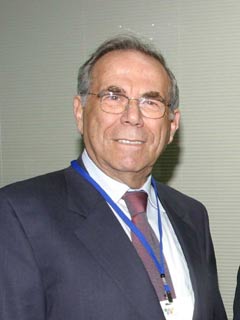A Quote by Stef Wertheimer
Achievements in successful export industries, which need highly skilled people, can create an area as flourishing as South Korea and Singapore.
Related Quotes
As South Korea shows, active participation in international trade does not require free trade. Indeed, had South Korea pursued free trade and not promoted infant industries, it would not have become a major trading nation. It would still be exporting raw materials (e.g., tungsten ore, fish, seaweed) or low-technology, low-price products (e.g., textiles, garments, wigs made with human hair) that used to be its main export items in the 1960s.
I think the regime in North Korea is more fragile than people think. The country's economic system remains desperate, and one thing that could happen for example would be under a new government in South Korea, to get the South Korean government to live up to its own constitution, which says any Korean who makes it to South Korea, is a Korean citizen. A citizen of the Republic of Korea. And you could imagine the impact that would have inside North Korea if people thought, "If I could get out and make it to South Korea, I could have a different life."
I don't think America needs 28,000 men on Okinawa. I don't think we need an army in Germany. What's it for, to protect Germans against the Russians, to protect the French against the Germans? It's just there by inertia, that's my reading of it. I don't think we need an army in South Korea because North Korea is absolutely no threat to South Korea.
We need to create an enterprise culture, a society where successful entrepreneurs are respected and admired, not treated with suspicion and disdain. And in which we see less envy of other peoples' achievements and mistrust of commerce, and a greater readiness to get out there and join in the process.
South Korea at the end of the Second World War had a very low level of literacy. But suddenly, like in Japan, they determined they were going in that direction. In 20 years' time, they had transformed themselves. So when people go on saying that it's all because of perennial culture, which you cannot change, that's not the way the South Korean economy was viewed before the war ended. But again within 30 years, people went on saying there's an ancient culture in Korea that has been pro-education, which is true.
I think I sort of realized it was an international thing when we went to South Korea for The Fast [and the Furious] 6 premiere. We knew nothing about South Korea, and we came through the sliding doors [at the airport] with my luggage and there were like 60 fans with Luketeer banners: "We're your Korea Luketeers." It was like, wow, this is amazing.

































